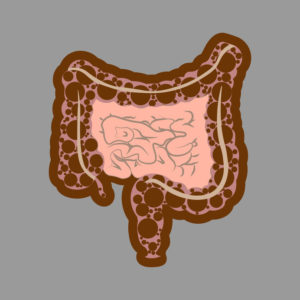
Every time your child eats, the food moves throughout the digestive tract. This is called gastrointestinal motility. Nerves and muscles contract during digestion to move food along the tract, from the mouth to the toilet. When there is a problem with gastrointestinal motility, it can cause problems like heartburn, diarrhea, or constipation.
If your child’s provider suspects a problem with gastrointestinal motility, they may order a test called antroduodenal maometry.
Make An Appointment
Phone 402-955-5700 | Fax 402-955-5720
What is Antroduodenal Manometry?
Antroduodenal manometry is a test to determine how well the muscles of the antrum and the duodenum work.
- The antrum is the lower part of the stomach, which prepares food to go into the small intestine.
- The duodenum is the first part of the small intestine, which receives the food.
The test measures both the strength and coordination of muscle contractions in this area that work to move food through the digestive tract.
Preparing for the Procedure
- Make sure your child has nothing to eat or drink for 8 hours prior to the scheduled procedure.
- Arrive at Children’s Hospital 2 hours before the procedure;
- Check in at the Access Center in the main hospital lobby 2 hours before the procedure.
Your child will have an intravenous line (IV) placed for the procedure to administer medications and fluids.
During the Procedure
- Your child will be taken to the procedure room and placed under general anesthesia.
- The doctor will then insert a small flexible tube through your child’s nose, down the esophagus, through the stomach, and into the small intestine.
- An endoscope is placed in the mouth and used to guide the tube into the small intestine. This is a hose-like tube with a light and camera at the end used to look at the stomach and small intestine.
- The Endoscope is removed and the tube is left in the small intestine.
- The tube is secured in place to the cheek with tape.
- If your child has a gastrostomy tube:
-
- The tube will be passed through the gastrostomy instead of the nose.
- The gastrostomy tube will then be replaced after the test is complete.
After the procedure:
- Your child will recover in the CARES unit for a short time.
- After recovery, your child will be transferred to the Short Stay Unit for the night while anesthesia wears off. The anesthesia can affect the test results, so we will not collect any measurements during the night.
- Your child will not be able to eat or drink anything throughout the night. They will receive intravenous (IV) fluids for hydration.
- Your child will need to rest in bed through the night.
Manometry
The next morning, your child will begin the manometry test.
During Manometry
- The tube will be connected to a computer to collect measurements the next morning.
- There are sensors on the tube to help measure the pressure in different areas of the stomach and small intestine. These pressures are recorded on a computer.
- Your child may be given medicines if needed to increase the movement of the digestive tract.
- Your child will NOT be allowed to eat or drink for the first 4 hours of the test.
- After 4 hours, a meal will be given so the computer can record the changes that occur with eating.
What to Expect
- You will need to rest in bed for 6 hours during the testing.
- Please bring activities that can be done from bed during the time of testing.
- Testing does not cause pain, but there may be some discomfort from the tube in the nose.
- Once the test is complete, the IV will be removed and the tube will be removed.
- Tube removal from the nose may cause a sneezing like sensation or a slight sore throat. These symptoms should go away within a few hours.
After the Manometry Test
Their provider will review the results from the testing before your child leaves the Short Stay Unit. Your child can return to a normal diet, play, and activities.
If you have any questions or concerns regarding your child’s antroduodenal manometry, please contact our office at 402-955-5700. We are also available through the Children’s Connect online portal.
What To Do Next
For Patients
Make An Appointment
To make an appointment, call 402-955-5700.
For Referring Providers
The Physicians’ Priority Line is your 24-hour link to pediatric specialists at Children’s for referrals, emergency and urgent consults, physician-to-physician consults, admissions, and transport services. Call 855-850-KIDS (5437).
Learn more about referring patients.